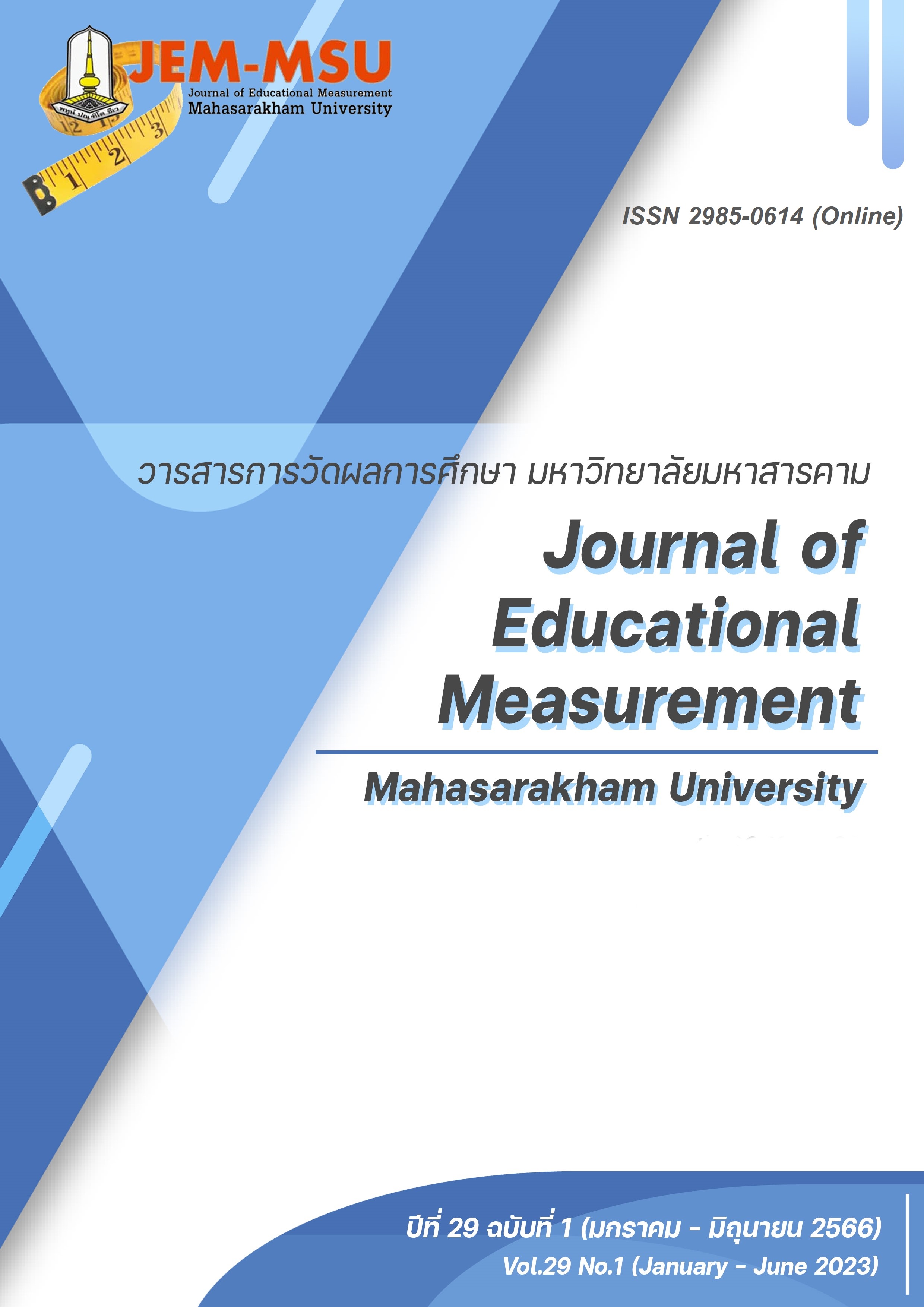The Confirmatory Factor Analysis of Creativity and Innovation for Rajabhat University Students
Main Article Content
Abstract
This research article aimed to study the components of creativity and innovation of Rajabhat University students. The study applied a quantitative research method. The sample used in the study consisted of 1,200 undergraduate students studying in Rajabhat Universities in the academic year 2021. The research instrument was a questionnaire inquiring about creativity and innovation of Rajabhat University students, with the reliability of .92. The data were analyzed using confirmatory factor analysis, Pearson Product Moment Correlation, standard deviation (S.D.), mean, and percentage.
The results showed that the creativity and innovation of Rajabhat University students consisted of 4 components, listed in descending order according to their importance, the components are as follows: creative cognition, social interaction, creative mind, and innovation creation respectively. The components had a good fit with the empirical data (Chi-square= 194.68, df=165, p-value=0.06, GFI=0.99, AGFI=0.98, RMSEA=0.01). When the consistency criterion was considered, it was found that the Chi-square value had no statistical significance, and other indexes indicated that the model was consistent with the empirical data. The findings of this study provide an insight into creativity and innovation of Rajabhat University students.
Article Details

This work is licensed under a Creative Commons Attribution-NonCommercial-NoDerivatives 4.0 International License.
The content and information contained in the published article in the Journal of Educational Measurement Mahasarakham University represent the opinions and responsibilities of the authors directly. The editorial board of the journal is not necessarily in agreement with or responsible for any of the content.
The articles, data, content, images, etc. that have been published in the Journal of Educational Measurement Mahasarakham University are copyrighted by the journal. If any individual or organization wishes to reproduce or perform any actions involving the entirety or any part of the content, they must obtain written permission from the Journal of Educational Measurement Mahasarakham University.
References
Amabile, T. M. (1988). A Model of Creativity and Innovation in Organizations. Research in Organizational Behavior, 10(1), 123-167.
Batey, M. (2011). Is Creativity the Number 1 Skill for the 21st Century? Psychology Today. https://www.psychologytoday.com/us/blog/working-creativity/201102/is-creativity-the-number-1-skill-the-21st-century.
Diamantopoulos, A., Siguaw, J. A., & Cadogan, J. W. (2000). Export Performance: The Impact of Cross-Country Export Market Orientation. In American Marketing Association Conference Proceedings, 11(1), 177.
Johnson, M. W. (2010). The Time has come for Business Model Innovation. Leader to Leader, 2010(57), 6–10.
Lindeman, R. H., Merenda, P. F., & Gold, R. Z. (1980). Introduction to Bivariate and Multivariate Analysis. Scott Foresman & Company.
Morrison, M. (2010). Creativity and Innovation Models - applying in practice. https://rapidbi.com/ creativity-and-innovation-models-applying-in-prac/
Partnership for 21st Century. (2019). Learning and Innovation Skills-4Cs Key Subjects-3Rs and 21st Century Framework for 21st Century. 2001: One Massachusetts Avenue, Suite 700. www.P21.org
Power, J. B. (2016). An Investigation into the Factors Affecting Student Creativity in Higher Education in Thailand. Thammasat Review, 18(1), 177–198.
Buanoi, D. (2016). Innovation and Creativity. Journal of Marketing and Management Rajamangala University of Technology Thanyaburi, 3(1), 1-12. (in Thai)
Chantago, J. (2019). Teaching in 21st Century. Teaching Materials. Mahamakut Buddhist University Isan Campus. Khon Kaen. (in Thai)
Chinnawong, W. (2001). Integrated Learning and Teaching. Academic Journal, 4(10), 140-155. (in Thai)
Educational Quality Assurance Center King Mongkut’s University of Technology North Bangkok. (2014). 21st Century Learning Skills. KMUTNB, 303(1). (in Thai)
Kachintorn, U. (2018). The Solution of Thai Higher Eductional Crisis. Graduate School Development and Research Chiang Mai University. (in Thai)
Ministry of Higher Education, Science, Research and Innovation. (2021). University Student Data is divided by educational level and gender. Ministry of Higher Education, Science, Research and Innovation. https://data.go.th/dataset /univ_std_11_01 (in Thai)
Muangsuriya, R. (2016). Community Development: Rethinking Issues in Changing Society. Journal of Social Development, 18(1), 123–141. (in Thai)
Panit, W. (2013). Teachers for Learners to build flipped classroom. www.scbfoundation.com. (in Thai)
Piyakun, A. (2016). Teaching Document for 0502 101 Psychology for Teachers Revised Edition 2016. Educational Psychology and Guidance. Faculty of Education Mahasarakham University. (in Thai)
Somabut, A. (2013). Constructivist Theory. https://teacherweekly.wordpress.com/2013/09/25/(in Thai)
Tayraukham, S. (2012). Research Methodology for Humanities and Social Sciences. Mahasarakham University. (in Thai)
Wongyai, W., & Patphol, M. (2014). Coaching for Thinking (3rd Ed.). Charansanitwong Printing.(in Thai)


